August 8, 2025
Territorial TaxationRUC Paraguay Explained: Essential 0% Tax Insights
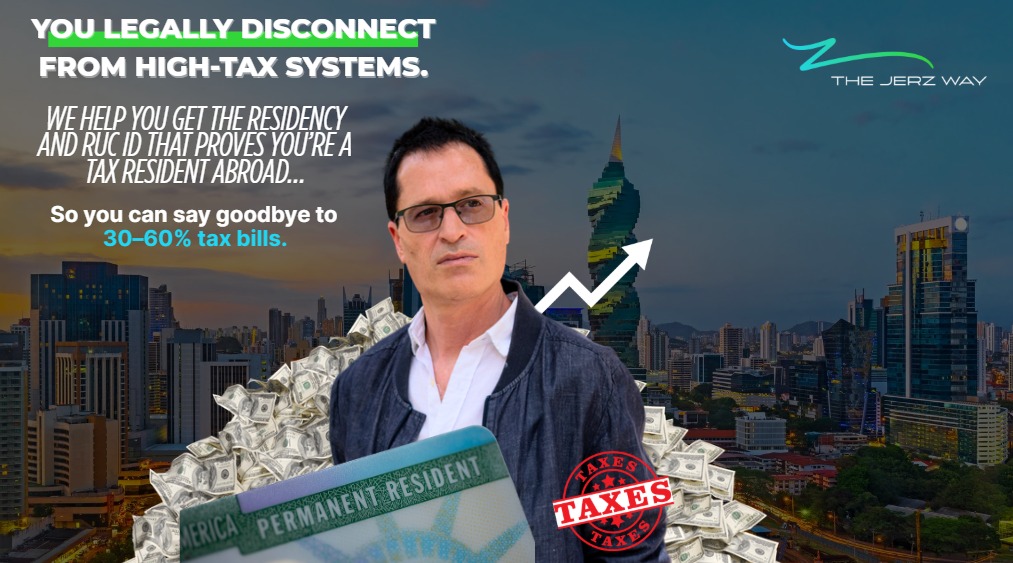
The RUC number is a vital identification for tax residents, expats, and entrepreneurs in Paraguay, enabling access to its powerful and underrated territorial tax system.
Paraguay’s 0% tax on foreign income makes it a legit strategy, not a loophole, for digital nomads and global entrepreneurs ready to build a clean, long-term Paraguay tax strategy.
Securing permanent residency and a Paraguayan identity card is required before obtaining a Paraguayan tax ID for foreigners, which unlocks eligibility for tax incentives and legal compliance.
Understanding the process, paperwork, and pitfalls ensures a smooth application, especially for Canadians, Europeans, and remote earners seeking a solid fiscal home base.
Maintaining compliance and managing your RUC Paraguay responsibly is non-negotiable if you want to stay tax-resident and legally untouchable in Paraguay.
Opening Overview
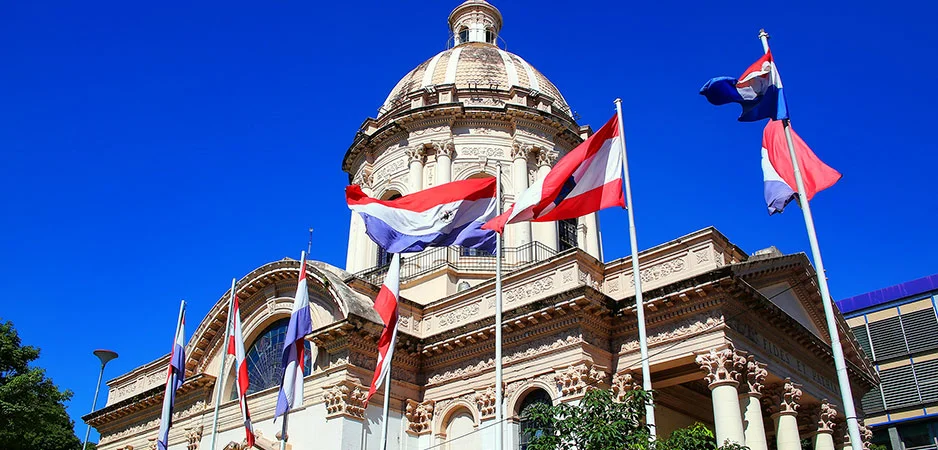
Thinking about making Paraguay your new fiscal home? You’re not alone. I’ve helped hundreds make the move, and I made it myself. Paraguay offers a rare opportunity: a real residency program that unlocks true tax freedom through territorial taxation. No games. No gray zones.
If you’re coming from Canada, the U.S., or Europe and looking to legally detach from high-tax systems, this guide gives you the step-by-step on how to secure your RUC, maintain it, and benefit fully.
This guide breaks down the essentials of Paraguayan tax residency, the steps to secure your RUC number, and what it really means for your tax future in a country that puts you in control.
Understanding the RUC in Paraguay: A Primer for Global Citizens

If you’re exploring relocation or tax optimization in South America, Paraguay’s RUC is a crucial concept. The RUC number serves as the backbone of the country’s tax system, directly tied to your Paraguayan identity card and legal status. Understanding how your home country’s tax rules interact with Paraguay’s approach is critical. This section outlines what the RUC is, why it matters, and who is required to obtain it before reaping Paraguay’s distinctive tax benefits.
What Is the RUC and Why Does It Matter?
The Registro Único del Contribuyente (RUC) is your unique taxpayer identification number in Paraguay. If you plan to do anything economic, open a business, issue an invoice, file a return, you need this number.
But here’s the CEO-level insight: the RUC proves your tie to Paraguay. It’s your way of saying, “Hey, I’m playing by the rules here, and not over there.”
“The RUC acts as your official entry into Paraguay’s favorable fiscal landscape.” — Alejandro, Vivir Paraguay
It’s not a hack. It’s a signal, to banks, governments, and global partners, that you’re playing clean.
Who Needs a RUC: Residents, Expats, and Digital Nomads

Not everyone automatically needs a RUC upon arrival, but for those looking to engage in economic activity or become a recognized tax resident, it becomes non-negotiable. Here’s who typically must apply:
- Permanent residents seeking to benefit from Paraguay’s tax regime.
- Expats planning to open a business or work as freelancers.
- Digital nomads and remote workers needing a tax identity for international transfers.
You don’t apply for an RUC at the earliest stage of residency. Only after securing your Paraguayan identity card, a process requiring valid documentation and physical presence, do you move forward. While not every resident must get a RUC, anyone aiming for full fiscal advantages or planning to operate within Paraguay’s legal framework must complete this step. The requirements are straightforward, but timing and accuracy are critical for a smooth journey.
The Role of the RUC in Paraguay’s 0% Tax System
Paraguay has emerged as an attractive destination for those seeking true fiscal flexibility. The heart of its allure is the 0% tax on foreign income, made possible by its territorial taxation system. The RUC acts as your ticket to these incentives, ensuring you can legally claim tax resident status and benefit from the system’s unique structure. Whether you’re an investor, entrepreneur, or remote worker, understanding the RUC’s function is fundamental to maximizing these financial advantages and staying compliant.
Territorial Taxation Explained: How Paraguay Taxes Foreign Income
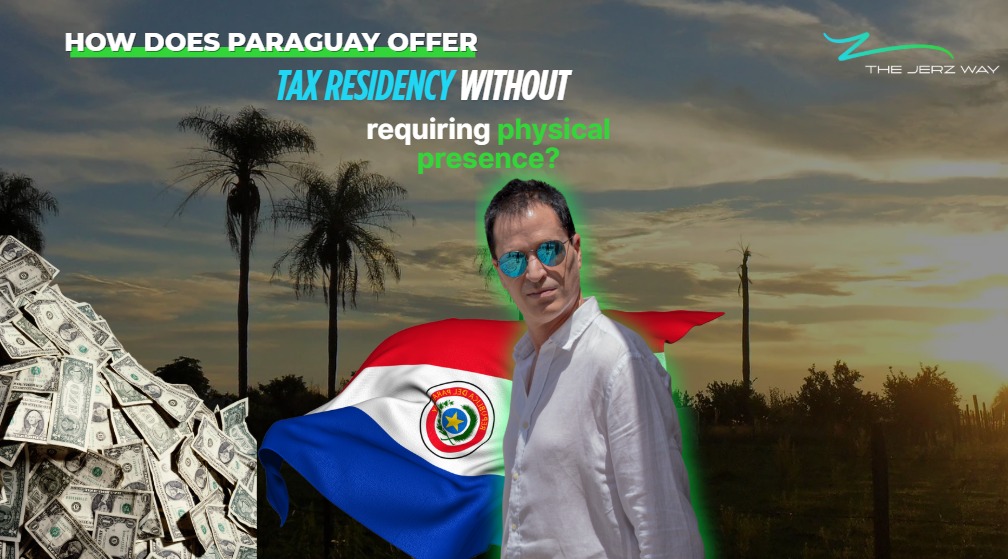
Paraguay’s territorial tax system means that only income generated within its borders is taxed, while any earnings from abroad, whether from investments, remote work, or business activities outside Paraguay, are subject to a 0% tax rate. When you register for a RUC and establish yourself as a tax resident, you officially fall under this system.
In practical terms, your salary from a Canadian company, dividends from U.S. stocks, or freelance income from overseas clients remains untaxed by Paraguayan authorities. As a tax resident, you enjoy a level of financial privacy and freedom rarely matched by other jurisdictions. However, all income sourced domestically, such as local business operations or rental income from Paraguayan real estate, will be subject to local tax rates. This structure is what makes Paraguay uniquely advantageous for global citizens.
Tax Advantages and Obligations with a RUC
Acquiring a RUC unlocks a range of tax incentives and privileges, yet it also comes with clear obligations. Here’s what you need to know:
- 0% tax on foreign income: As long as the income source is outside Paraguay, you owe nothing.
- Low local taxation: Only 8–10% tax applies on local income, with generous deductions possible.
- Capital gains tax exemptions: Foreign investment profits, including stock sales, are not taxed in Paraguay.
However, holding a RUC means you must file monthly or annual declarations, even if there’s no local activity to report. Proper compliance keeps your status in good standing. The RUC also enables the issuance of invoices, opening of bank accounts, and access to official tax compliance certificates. Failing to meet these obligations can result in penalties, suspension, or loss of tax resident status, making ongoing management essential.
Getting Started: What You Need Before Applying for a Paraguayan RUC

Preparation sets the stage for a smooth RUC application. Before starting the process, you’ll need to confirm your eligibility requirements and assemble the right paperwork, think proof of address, birth certificate, and other essentials. Paraguay’s system is known for being accessible, but missing or incorrectly validated documents can cause delays. Knowing what you need, where to obtain it, and how to ensure its acceptability (like the Hague Apostille Convention) is crucial for both new residents and foreign nationals eager to settle in Paraguay.
Step-by-Step Guide: How to Apply for Your RUC in Paraguay
Step 1: Secure Your Residency and Obtain a Paraguayan ID
Before anything else, you must obtain legal residency in Paraguay. For most, this starts with either a temporary residence (renewable annually with minimal physical presence) or a permanent residency (valid for ten years with even greater flexibility). Only after this status is granted can you apply for a Paraguayan identity card (cédula de identidad).
The process involves presenting your apostilled passport, birth certificate, and proof of address at Paraguay’s migration office. You’ll also need a local residence card and may be asked for additional documents, depending on your situation. Once you hold your identity card, you’re recognized as a legal resident, unlocking eligibility to apply for a RUC. This foundational step is essential, as both your residency and ID connect you to all future fiscal privileges and obligations.
Step 2: Gather and Validate Required Documentation
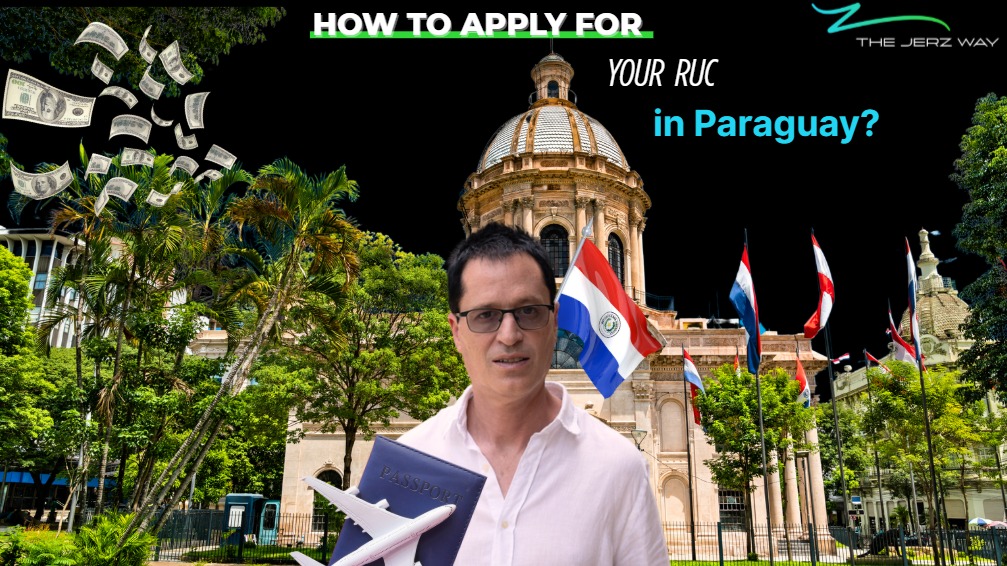
Having your residency and ID in hand, the next task is to collect all documentation required for the RUC application, ensuring each is current, authenticated, and, if necessary, apostilled. This bundle typically includes:
- Apostilled birth certificate and passport, showing proof of nationality and identity.
- Proof of address from either Paraguay or your country of origin.
- Your newly issued Paraguayan ID card.
Thoroughly check that each document meets the standards set by tax authorities, incomplete or incorrectly validated paperwork is the top cause of delays. Double-check expiration dates and ensure translations if your documents are not in Spanish. Reach out to the relevant embassy or migration office for guidance on any ambiguities. Proper preparation here dramatically increases your odds of a hassle-free process at the next stage.
Step 3: Submit Your Application at the Tax Authority (SET)
Upon gathering the necessary documentation, the next phase involves submitting your application at the tax authority, specifically to obtain your RUC number. Ensure all documents are correctly filled out, including your identity card and proof of address, as any discrepancies could delay your application. It's advisable to submit during business hours to maximize the chances of prompt processing. As Paraguay operates a territorial taxation system, the RUC number will significantly aid in managing tax obligations and enhancing your foreign investments within the region.
Step 4: Await Processing and Receive Your RUC Number
After submitting your application, the SET will process your paperwork, which typically takes between 3 and 10 business days. The timeline can vary depending on demand and whether you’ve applied for standard or expedited service. Here’s what to keep in mind:
- Standard processing: 3–10 business days for individuals, as long as all documentation is correct.
- VIP or expedited services: Sometimes available for an additional fee, potentially shortening the wait.
Once approved, you’ll be issued your RUC number, the unique identifier that establishes you as a tax resident. This number is the key to operating as an individual or business in Paraguay, accessing banking services, and formally benefiting from the territorial tax regime. Keep your RUC notification safe, and be sure you understand your new obligations for ongoing compliance.
Common Challenges and Mistakes in the RUC Application Process

While Paraguay’s system is known for simplicity, many applicants run into issues that delay or derail their tax residency plans. Most challenges stem from missing or improperly validated documentation, misunderstanding application steps, or falling victim to misinformation and scams. Staying organized and aware is vital. By anticipating the common pitfalls and prioritizing thorough preparation, you greatly improve your chances of a swift, trouble-free experience. Next, let’s examine typical mistakes and ways to protect yourself during the process.
Avoiding Documentation Errors and Delays
One of the most frequent stumbling blocks is incomplete or incorrectly prepared documentation. Common mistakes include:
- Forgetting to apostille or legalize documents as required by Paraguayan laws.
- Presenting expired or outdated criminal records or residency proofs.
Double-check every piece of paperwork before leaving your home country and again before submitting it in Paraguay. Consult official checklists, reach out for clarification from SET, and never assume that a digital or translated copy will suffice unless explicitly stated. “Proper preparation is the best possible user experience,” says Alejandro. Give yourself at least one to four months before travel to organize documents. This will prevent last-minute surprises that could extend your timeline or result in an outright rejection.
Recognizing and Preventing Scams or Bad Advice
Unfortunately, Paraguay’s popularity has led to an increase in scams and unreliable services. Stay vigilant by watching for:
- Agencies promising incredibly fast or guaranteed results at suspiciously low costs.
- “Consultants” who disappear after taking payment, leaving you with incomplete paperwork.
- Advice that encourages skipping legal steps or presenting false documentation.
The best option is to use only reputable, established advisors or accountants with a physical presence in Paraguay. Always request receipts and check references before making payments. If you’re unsure, approach the tax authorities directly or consult official resources. Bad tax planning or fraudulent activity can jeopardize both your residency and future financial security. Protect yourself by thoroughly vetting any third parties and seeking multiple opinions if anything feels off.
Maintaining Your RUC: Ongoing Obligations and Best Practices
Once you’ve secured your RUC, the journey doesn’t end. Paraguay requires ongoing obligations from tax residents, including periodic filings and keeping your information up-to-date. Following best practices not only ensures legal compliance but also keeps you eligible for all available fiscal perks. Neglecting your RUC responsibilities can result in suspension or financial penalties, so being proactive and attentive is essential for maintaining your advantageous tax status in Paraguay.
Filing Requirements and Annual Compliance
After receiving your RUC, you’ll need to meet specific filing requirements with the tax authorities, even if you’re not generating local income. This often means monthly or annual tax declarations, depending on your economic activity. Employing a local accountant is common, with fees starting around $30–$40 USD per month, to handle your filings and ensure you don’t miss key deadlines.
Staying compliant also involves responding to SET correspondence, maintaining clear records of your international and domestic transactions, and promptly providing updated details if requested. Meeting these obligations demonstrates your ongoing presence in Paraguay’s system, helping you avoid fines, suspension, or the dreaded loss of tax resident status. Consider setting up reminders or using a professional service to manage these tasks seamlessly.
Updating Information and Handling Changes in Status
Life changes, and so can your residency or financial situation. Whenever you move, change your name, shift from temporary to permanent residency, or experience any major update in your circumstances, you must inform Paraguay’s tax authorities right away. Keeping your fiscal ID data current isn’t just smart, it’s the law.
Failing to update your information can trigger compliance issues or even lead to suspension of your registration. Common triggers include letting your Paraguayan ID expire, changing your primary address, or altering your declared economic activity. If your residency transitions from temporary to permanent, or if you spend extended periods outside Paraguay, notify authorities to ensure your filing status stays correct.
Proactive communication and proper documentation will keep you in the clear and make future steps like business expansion, re-entry into Paraguay, or renewing bank compliance far smoother.
While a TIN in the U.S. serves primarily for domestic tax filing, Paraguay’s RUC is your all-in-one ticket to tax residency, compliance, and business operations. For most expats, the RUC is essential if they want to benefit from Paraguay’s tax structure, while a TIN or CPF serves broader, but less advantageous, roles in their respective countries.
Implications of RUC for Digital Nomads
.jpeg)
For digital nomads, the RUC offers game-changing flexibility. Holding a RUC and tax residency certificate allows you to declare foreign investments, enjoy tax-free capital gains, and operate globally without fear of double taxation. Operating under Paraguay’s system, you can structure your finances so that all income generated outside the country remains untouched by local authorities.
However, to maintain this status, you must demonstrate real ties to Paraguay, like valid residency and up-to-date filings. If your business or investments shift into Paraguay, local tax rates will apply. The RUC, therefore, is not just a formality; it’s your legal safeguard in the ever-changing landscape of international taxation. For digital nomads, it’s hard to find a more straightforward or attractive fiscal home.
Frequently Asked Questions (FAQs) About the RUC in Paraguay

How long does it take to get a RUC in Paraguay?
Once you’ve submitted all the correct and apostilled documents, it typically takes 3 to 10 business days to receive your RUC. If you're using expedited services through a local accountant or agency, processing can be faster.
Is the RUC mandatory for all expats, digital nomads, or freelancers?
If you're planning to engage in any economic activity, open a business, invoice clients, or claim tax residency, then yes, the RUC is mandatory. It’s your official gateway into Paraguay’s 0% foreign income tax system.
What happens if I don’t maintain or update my RUC?
Failing to file your monthly or annual declarations, even with zero income, can lead to suspension or deactivation. That means losing your tax resident status and potentially re-triggering tax obligations in your home country. Stay compliant.
Can digital nomads or remote workers apply for a RUC?
Absolutely. In fact, Paraguay is one of the most digital-nomad-friendly countries for tax strategy. If you earn income from clients outside Paraguay, you can apply for a RUC, maintain your 0% tax rate, and run your global business legally.
What’s the difference between a RUC and a TIN?
The RUC is Paraguay’s tax ID number, tied to a territorial tax system. A TIN (used in the U.S. and other countries) is typically linked to worldwide taxation. The RUC shields your foreign income; the TIN reports it.
Can I expedite the RUC process?
Yes. While the standard timeline is one to two weeks, many local firms and consultants offer VIP processing with shorter turnaround times. Just ensure you’re working with a reputable service provider who doesn’t cut legal corners.
What documents do I need to apply?
You’ll need:\n- Apostilled passport and birth certificate\n- Proof of address\n- Your Paraguayan residency card (cédula)\nEach document must be current and meet validation standards, especially if you're coming from outside the Hague Apostille Convention.
Final Words
In conclusion, understanding the RUC (Registro Único de Contribuyentes) in Paraguay is essential for anyone looking to navigate the country's unique 0% tax system. By familiarizing yourself with the application process, ongoing obligations, and the potential advantages for residents, expats, digital nomads, and small entrepreneurs, you can leverage this knowledge to make informed decisions. As you embark on your journey, remember that proper maintenance of your RUC is crucial to avoid complications down the line.
If you're ready to dive deeper into the intricacies of the RUC or need personalized guidance, don't hesitate to reach out and get a free consultation. Your financial future in Paraguay could hinge on the steps you take today!
Paraguay Tax Strategy for Entrepreneurs
Explore our full Paraguay Tax Strategy breakdown, designed for remote workers, investors, and business owners seeking legitimate 0% taxation.
Paraguayan Tax ID for Foreigners: Documentation Checklist
Visit our documentation checklist to ensure you have every required form and apostille before starting your application.
Ready to take action?
Book your free consultation today and let’s build your legal 0% tax strategy the right way.
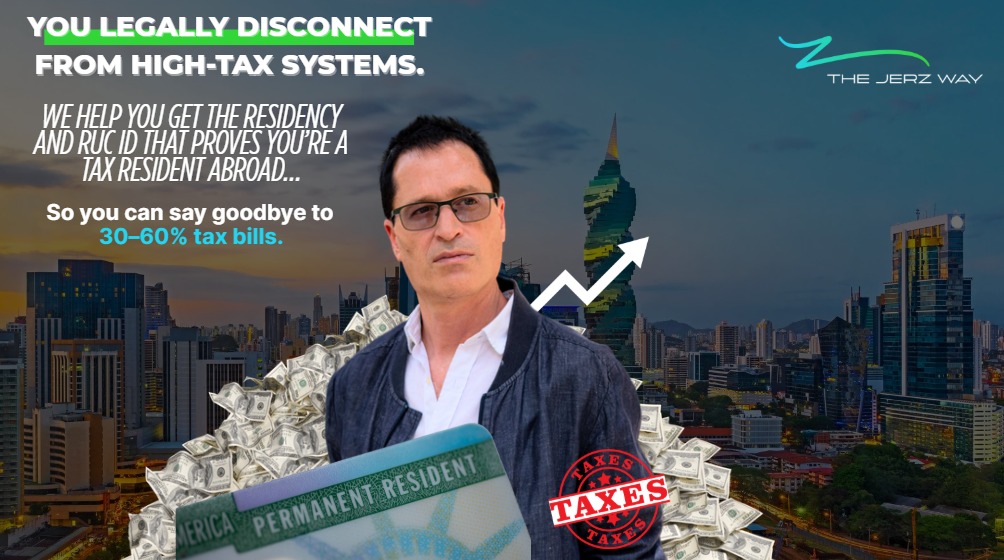
Follow The Jerz Way for More Freedom Tools
We post weekly guides, strategies, and success stories from sovereign entrepreneurs, remote workers, and global investors just like you.
02
Action Plan & Document Collection
We create a tailored action plan aligned with your chosen service(s). This stage includes gathering required documents and handling essential tasks such as translations, apostilles, and genealogical research.
